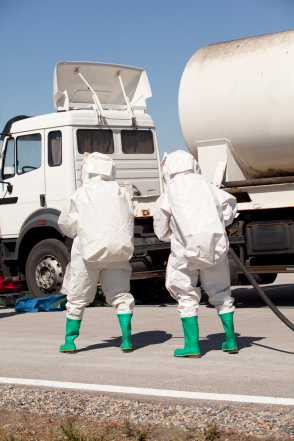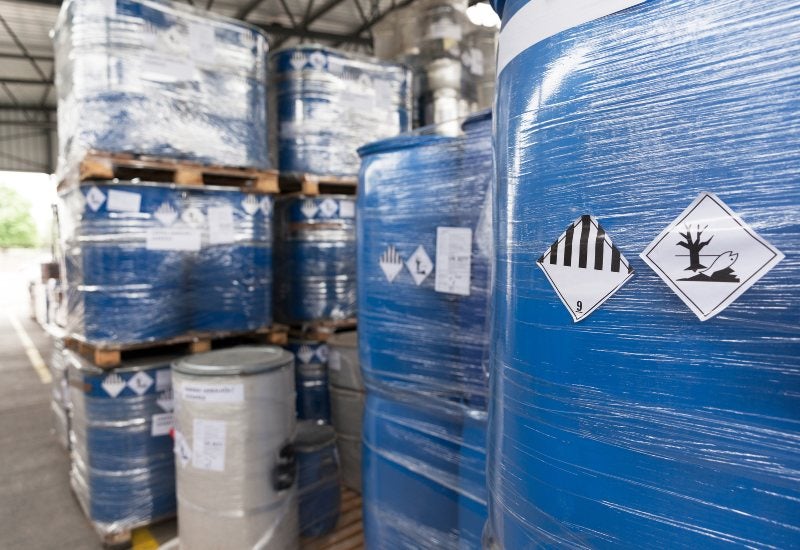Recognizing the Comprehensive Process of Fluid Waste Disposal: Best Practices and Environmental Influence Considerations
The administration of liquid waste disposal is a diverse problem that needs a comprehensive understanding of numerous finest methods and their linked ecological effects. From the kinds of fluid waste generated to the approaches used for collection, therapy, and last disposal, each step plays an essential function in safeguarding ecosystems and public wellness.
Sorts Of Fluid Waste
Understanding the various sorts of fluid waste is essential for effective monitoring and disposal techniques. Fluid waste can be broadly categorized right into numerous kinds, each needing distinct handling and treatment strategies.
Industrial liquid waste frequently contains unsafe products, consisting of hefty metals, solvents, and chemicals, generated throughout producing processes. These wastes necessitate rigorous governing conformity to safeguard human wellness and the atmosphere. Residential fluid waste largely refers to wastewater generated from households, including sewer and greywater, which, although much less hazardous, can still posture considerable risks if improperly handled.
Agricultural fluid waste, including drainage from farms, frequently contains fertilizers and chemicals that can lead to ecological deterioration otherwise treated sufficiently. Clinical fluid waste, generated from medical care centers, consists of polluted fluids such as physical fluids and chemicals, requiring specialized disposal approaches to prevent infection and environmental contamination.
Lastly, oil and grease waste, normally created by dining establishments and automobile markets, can create extreme clogs in sewage system systems otherwise handled properly. Comprehending these classifications facilitates targeted methods for treatment, conformity with laws, and reliable disposal techniques, ultimately promoting ecological sustainability and public wellness safety.

Collection Approaches
Effective collection approaches are vital for the proper administration of liquid waste, ensuring that it is collected securely and effectively before treatment or disposal. Different techniques are used depending upon the kind of fluid waste produced, the quantity, and the details attributes of the waste.
One common approach is the usage of specialized collection tanks or sumps, which are made to record fluid waste at the source. These systems typically incorporate pumps that assist in the transfer of waste to bigger storage containers or treatment centers. In addition, mobile collection devices equipped with vacuum cleaner innovation are utilized in situations where waste is produced intermittently or in hard-to-reach locations.
For industrial settings, closed-loop systems can properly decrease spills and leakages, permitting the recuperation and reuse of fluid waste. It is additionally important to educate personnel on appropriate collection methods to reduce threats connected with unsafe materials.
Additionally, executing routine upkeep timetables for collection equipment guarantees optimum efficiency and safety. The assimilation of advanced surveillance systems can improve collection effectiveness by supplying real-time information on waste degrees and potential dangers. Overall, effective collection techniques are foundational to sustainable liquid waste administration methods.
Therapy Processes
Treatment procedures play a crucial function in the monitoring of liquid waste, transforming potentially unsafe products into multiple-use resources or risk-free effluents - liquid waste disposal. These processes can be broadly categorized right into physical, chemical, and organic techniques, each tailored to deal with particular pollutants present in the waste stream
Physical treatment approaches, such as sedimentation and purification, job by eliminating suspended solids and particulate issue. These strategies are often the initial step in the treatment chain, efficiently decreasing the load on succeeding procedures. Chemical treatments entail the usage of reagents to neutralize damaging substances, precipitate heavy steels, or oxidize organic toxins, therefore boosting the safety and security of the effluent.
Organic therapy processes, including triggered sludge systems and anaerobic digestion, take advantage of on the natural capacities of bacteria to degrade organic matter. These approaches are specifically effective for wastewater consisting of eco-friendly toxins. Advanced therapy technologies, such as membrane layer purification and advanced oxidation procedures, are increasingly used to achieve greater levels of purification.
Integrating a combination of these treatment approaches not only makes sure compliance with governing requirements however additionally promotes environmental sustainability by recuperating useful sources from fluid waste.
Disposal Options
Exactly how can organizations guarantee the risk-free and liable disposal of fluid waste? Effective disposal choices are vital for guarding public health and wellness and the atmosphere. The primary approaches consist of land therapy, incineration, and disposal followed by discharge right into community wastewater systems.
Land disposal includes the careful control of fluid waste in assigned land fills, guaranteeing that it does not seep right into surrounding soil or water. Incineration, on the various other hand, subjects liquid waste to high temperatures, transforming it right into ash and gases, which require proper filtration to minimize discharges. This technique appropriates for harmful wastes that can not be dealt with with typical methods.
In instances where liquid waste can be dealt with, organizations may select biological or chemical therapy procedures to counteract hazardous elements before releasing the treated effluent into municipal systems. This route typically aligns with regulative requirements, making sure that the effluent satisfies safety and security criteria.
Eventually, organizations should perform detailed evaluations of each disposal alternative to establish its feasibility, thinking about aspects such as waste make-up, regulative conformity, and prospective threats to health and wellness and the environment. By selecting suitable disposal methods, businesses can contribute to a liable waste administration approach.
Environmental Effect
The ecological effect of fluid waste disposal try these out is a crucial factor to consider for companies looking for to minimize their eco-friendly impact. Additionally, the discharge of untreated or inadequately treated waste into surface area waters can result in eutrophication, leading to oxygen exhaustion and the succeeding death of fish and various other organisms.

To mitigate these effects, organizations need to embrace best techniques such as executing strenuous have a peek here waste treatment processes, promoting recycling and reuse, and adhering to regulatory requirements. By taking a proactive strategy to fluid waste management, entities can substantially reduce their ecological footprint while sustaining lasting development objectives. Eventually, a detailed understanding of the ecological influences connected with liquid garbage disposal is crucial for educated decision-making and accountable stewardship of natural deposits.
Conclusion
Effective monitoring of liquid waste is essential for safeguarding environmental stability and public health. By embracing ideal practices in disposal, collection, and treatment, together with adherence to governing criteria, the potential for unsafe contamination of communities can be significantly decreased. Continuous developments in modern technology and processes add to sustainable waste monitoring initiatives. Inevitably, a thorough understanding of liquid garbage disposal not only minimizes environmental influences yet also fosters a dedication to liable source administration and environmental stewardship.
The administration of fluid waste disposal is a multifaceted problem that calls for a detailed understanding of numerous best techniques and their linked ecological influences. From the kinds of fluid waste created to the approaches employed for collection, therapy, and final disposal, each action plays a vital function in protecting environments and public health and wellness.The environmental influence of fluid waste disposal is a crucial consideration for companies seeking to decrease their environmental footprint. Inevitably, a comprehensive understanding of the environmental impacts associated with liquid waste disposal is necessary for notified more helpful hints decision-making and responsible stewardship of all-natural sources.
Inevitably, an extensive understanding of liquid waste disposal not just minimizes environmental influences yet likewise cultivates a commitment to responsible source management and ecological stewardship.
Comments on “Specialist Liquid Waste Removal Melbourne: Quick and Budget Friendly Solutions”